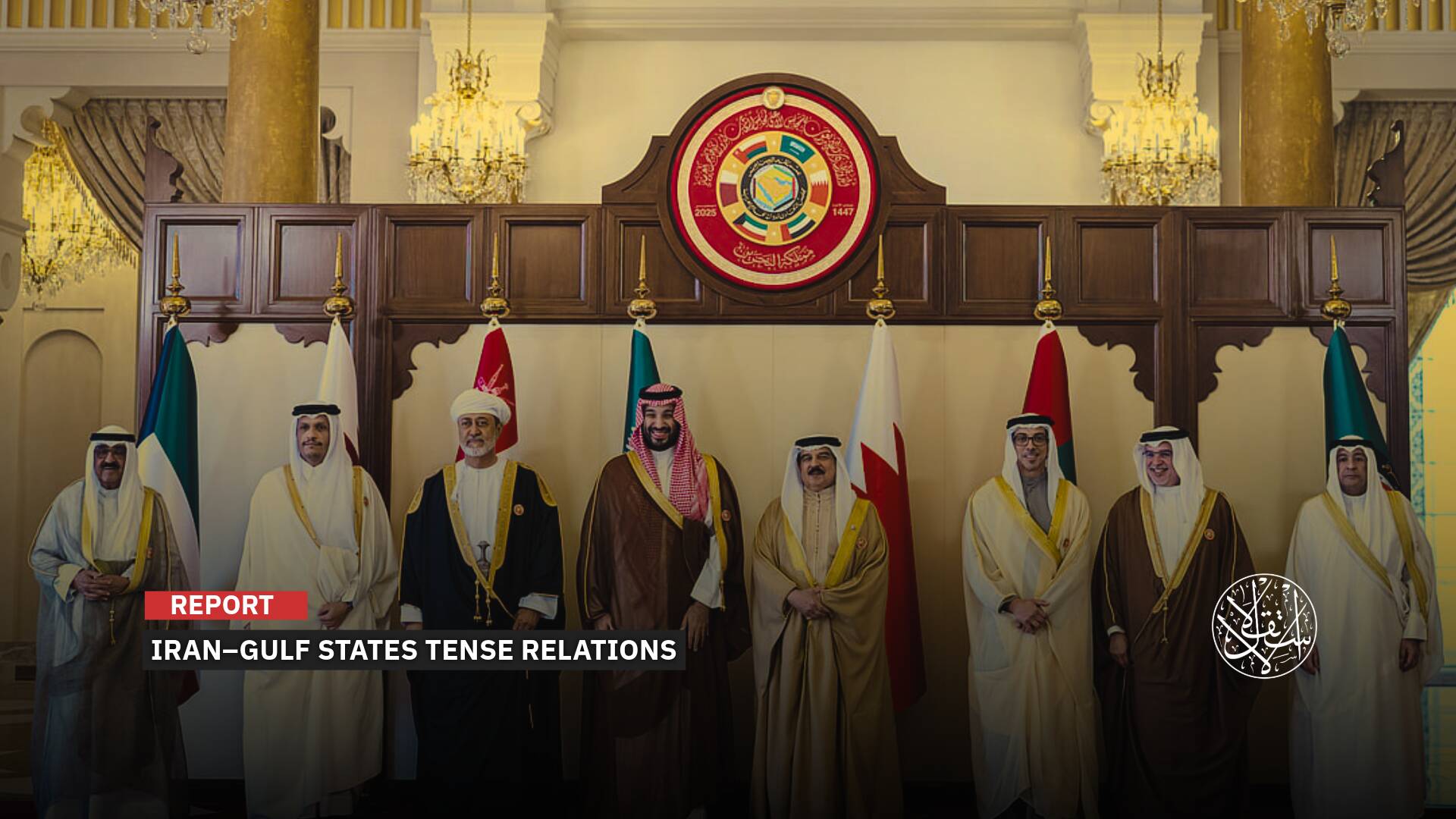Through U.S. Mediation: Can Syria Really Stop Israeli Aggression?

“The dialogue is no longer limited to intermediaries.”
Strikingly, the new Syrian government is using diplomacy to pressure Israel into honoring international agreements governing borders, while steering clear of Tel Aviv’s push to tie de-escalation to normalization.
Syria said on July 4, 2025, that it was open to working with the U.S. to revive the 1974 disengagement agreement with the Israeli Occupation.
Meanwhile, Israeli Occupation forces carry out near-daily ground incursions into Syrian territory, routinely launching airstrikes that result in both material damage and loss of life.
Israel has also seized control of Mount Hermon and several Syrian villages and lands, pushing more than 25 kilometers into Syrian territory—an expansion of its occupation beyond the Golan Heights.
Mount Hermon, which straddles the Syrian-Lebanese border and overlooks the occupied Golan, is visible from as far as Jordan.
During the October 1973 war, “Israel” occupied an additional 510 square kilometers of the Golan Heights. It later withdrew in 1974 under the Disengagement Agreement, which established an 80-kilometer-wide demilitarized buffer zone.

De-escalation
Syria’s foreign ministry announced that Minister Asaad al-Shaibani, in a phone call with his U.S. counterpart Marco Rubio, expressed Damascus’s “interest in cooperating with the United States to return to the 1974 Disengagement Agreement.” The two reportedly discussed “Israel’s” repeated assaults on southern Syria.
Damascus insists that any indirect negotiations with “Israel” be anchored in a return to the 1974 disengagement accord, originally signed by Hafez al-Assad. The deal was meant to halt hostilities and install a UN-monitored demilitarized buffer zone between the two sides.
U.S. envoy to Syria Tom Barrack confirmed on July 3 that Syria and “Israel” have been engaged in “serious talks” facilitated by Washington aimed at restoring calm along their shared border, according to New York Times.
Barrack noted that the U.S. administration is brokering an indirect dialogue as part of a broader diplomatic effort to stabilize the frontlines and explore whether Syria might eventually join the Abraham Accords—agreements that normalized ties between “Israel” and several Arab states under President Donald Trump.
He cautioned, however, that Syria’s accession to the accords won’t happen overnight, saying President Ahmed al-Sharaa may face internal resistance and that his people can’t compel or dictate his signature.
“He cannot be seen by his own people to be forced or coerced into the Abraham Accords,” Barrack said. “So he has to work slowly.”
Israeli Foreign Minister Gideon Sa’ar said on June 30 that “Israel” was “interested” in normalization with both Syria and Lebanon, but made clear that the Golan Heights “will remain part of the State of Israel in any future peace deal.”
Syria's state news agency (SNC) soon pushed back, quoting an unnamed official who called talk of “a peace deal” with “Israel” “premature.” The official said negotiations would only be possible once “Israel” fully honors the 1974 agreement and withdraws from territories it has occupied since.
Since Assad’s fall, the Israeli Occupation has steadily expanded beyond the UN buffer zone, apparently seeking to impose a new security reality in southern Syria. War Minister Yisrael Katz said in March 2025 that “Israel” will ensure the south remains demilitarized and free of “threats.”
He added that Israeli forces “will remain in the security zones and on Mount Hermon to protect the communities of the Golan and Galilee.”
In a notable escalation, Israeli commandos recently carried out a five-hour air assault in the town of Rakhlah, just 10 kilometers from Damascus. Backed by three helicopters, the raid marked the first of its kind, targeting a site formerly used by Syrian forces. The “operation” was accompanied by heavy air traffic and explosions before the unit withdrew.

A Fragile Standoff
As Israeli Occupation attacks continue beyond the boundaries set by the 1974 disengagement agreement, analysts suggest “Israel” may be using the buffer zone to pressure Syria’s new leadership into considering normalization in exchange for a military pullback.
During a summit in Riyadh on May 14, 2025, U.S. President Donald Trump urged Syrian President Ahmed al-Sharaa—alongside Saudi Crown Prince Mohammed bin Salman—to consider joining the Abraham Accords. The appeal was part of Washington’s broader push to reshape the region’s diplomatic landscape.
The original Abraham Accords, signed in 2020 during Trump’s first term, normalized relations between “Israel” and several Arab states, including the UAE, Bahrain, and Morocco.
Speaking to Al-Estiklal, retired Brigadier General Abdullah al-Asaad, head of the Syrian Center for Strategic Studies Rasd, said the new Syrian government is trying to stay ahead of “Israel’s” military violations through diplomacy—and by exploring a potential peace deal to curb what he described as “Israel’s ongoing breaches of international law.”
“Such an agreement could pressure Israel to return to its pre-1974 positions and pave the way for future negotiations over the occupied Golan Heights, in line with UN Security Council Resolution 242,” he said.
“The longer talks are delayed, the more Israel could entrench its presence, particularly around areas near Damascus.”
“Right now, Syria’s leadership is trying to corner Israel diplomatically by involving the U.S. as a mediator—hoping to stop the violations and revive the international framework that governs southern Syria.”

No War, No Peace
Amid growing speculation over normalization, Israeli Occupation officials have recently acknowledged direct, ongoing contact with Syria’s new leadership, marking a shift from backchannel diplomacy to open coordination.
In a closed-door meeting of the Knesset’s Foreign Affairs and War Committee—leaked to Israel Hayom on June 28—Israeli National Security Adviser Tzachi Hanegbi revealed that he personally oversees security and political coordination with Damascus. “The dialogue is no longer limited to intermediaries [..] but has become direct communication involving multiple government levels,” he said.
He claimed the two sides share mutual interests, particularly regarding Iran’s presence in southern Syria, and suggested that both Syria and Lebanon could be next in line to join the Abraham Accords.
Israeli Foreign Minister Gideon Sa’ar echoed that position on July 2, saying “Israel has a strategic interest” in expanding normalization to include Damascus and Beirut.
But Syrian political analyst Ahmad al-Hawas told Al-Estiklal that while the discourse around normalization is intensifying, it remains premature. “Since the fall of the Assad regime, Israel has acted swiftly to destroy strategic Syrian weapons—fearing they might fall into the hands of rebels or the new Syrian state,” he said. “Israel wants either to drag Syria into a doomed war, push it into normalization, or build a new buffer zone beyond the occupied Golan Heights.”
Al-Hawas stressed that what’s being discussed is not normalization, but rather a return to the 1974 Disengagement Agreement. He noted that any formal peace treaty would likely have to be debated in Syria’s new parliament, not unilaterally decided by the presidency.
“I don’t believe the new Syrian leadership will move toward normalization with Israel anytime soon,” al-Hawas said. “There’s too much distrust on both sides. What we’re seeing is a fragile in-between phase—a time of neither war nor peace.”










